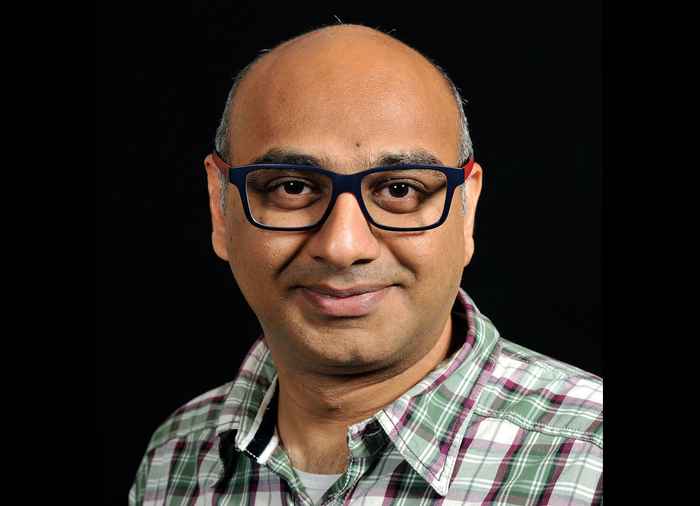Mentoring start-ups: ‘I didn’t have a mentor of my own, so I had to learn through making mistakes’

Reddy Bhimireddy, an alumnus of the masterclass Mentoring Start-ups, spoke to us about what he learned in the masterclass, and his experiences in mentoring start-ups. Hailing from India, he now works as a Chief Technology Officer while managing his own company in India and mentoring start-ups in an incubator.
How did you start mentoring?
'I didn’t have a mentor so I had to learn through making mistakes, which was time-consuming. Now I mentor people to help them avoid making those mistakes; not everyone has to go through the same experience. Not having special training to become a mentor led me to the masterclass: I wanted to optimise my knowledge. Now I mentor at an incubator, and I spend 5 to 6 hours a week working with 3 different start-ups. It's interesting work and a way of interacting with other people and different ideas.'
What are your most valuable take-aways from the masterclass?
'Going through this training helped me find a framework for the mentor-mentee relationship. You don’t have to set something up contractually, but you should establish some sort of rules. What expectations do we set? You must be clear about the extent of your involvement and draw a line. It’s their idea, their execution; you’re just guiding them. If there’s a problem, they have to solve it, not you.'
'A valuable lesson for me was to follow up and check in periodically. You need to maintain that relationship, because the start-ups won’t always come to you. I didn’t do this structurally, consistently, but now I meet with my people to review certain milestones.'
'I also learnt the difference between coaching and mentoring. A coach helps you improve a skill. As a mentor, you inspire and guide. Based on your experience you can see things happen before they do. If you want to work on an idea and see the big picture, find out how you navigate to reach your goal, mentors can help.'
What do you look for in a mentee?
'How serious they are. I make clear early on that someone needs to work on the idea full-time, and you need to get out of your comfort zone. If you can’t do that, no one will believe in you and follow you; you can’t build a team by simply spending money. To me, the team is more important than the idea.'
Start-ups go through different mentors at the same timeReddy Bhimireddy
'Especially in the beginning, the team is dependent on you: they need to believe in you. Do you have a long-term vision? Have you defined success? Most of the time you keep working without knowing where to go, but you need to have a destination, for your own clarity.'
As you learned in the masterclass, you can provide (business-focused) development support and (person-focused) psychosocial support. What do you do for your mentees?
'All people in start-ups are go-getters, they always have these brilliant ideas. But the idea is not enough. I tell my people to elaborate on the idea, think it through, and find out what they need. If they don’t know, I can’t help them, and investors can’t help them either.'
'Last year, I mentored a start-up that was developing a mobile app. I could connect them to a software developer, but the costs for the technology required would exceed the budget. The founder asked me to invest, but because he had a fulltime job and the start-up on the side, I didn’t feel comfortable enough to do so. Instead, I told him that his current business model wasn’t working for him. I helped him pivot his start-up to something more viable. His audience is now more clearly defined, and the start-up has more focus. He is now working with seven people, and is thinking about quitting his day job. The moment you have more time, the more you can work on leads.'
What did you learn from the other mentors in the masterclass?
'We had a group of 14 people, all with different backgrounds. What I noticed was that each of us had a different situation. Some people had to solve problems between co-founders, which I never had. In the course, you’re also taught to facilitate, to mitigate that kind of conflict. It’s a framework, some tools to deal with these kinds of situations that may arise in the mentorship.'
You can’t build a team by simply spending moneyReddy Bhimireddy
'I understood that start-ups sometimes go through different mentors at the same time, to see different approaches to a certain problem. They might not like mine and look for someone else’s perspective.'
What is your background as an entrepreneur?
'I have a technical background. After graduating in India, I got a job as a software engineer at British Airways in London. Later I found a job at a big telecom company in Italy, but then I started my own company. We implemented solutions for clients for financial applications, like collecting invoices. I had about 25 employees.'
'I enjoyed that process a lot, because I got to know various business very quickly, and talked to many different people – I spoke directly with CEOs and business owners, for instance. I travelled a lot for work, too, but I missed my family life, so I started looking for something more stable, which led me to a position as Solution Architect at Uber, which had just arrived in Amsterdam.'
'At the time that was attractive: building something from scratch, and their business process was very exciting. For the next four and a half years I worked there, before moving on to what I do now. Even though I worked at Uber, I didn’t throw out all of my contacts – a network is one of the biggest tools you can have. Through my network, I initially found my mentees.'